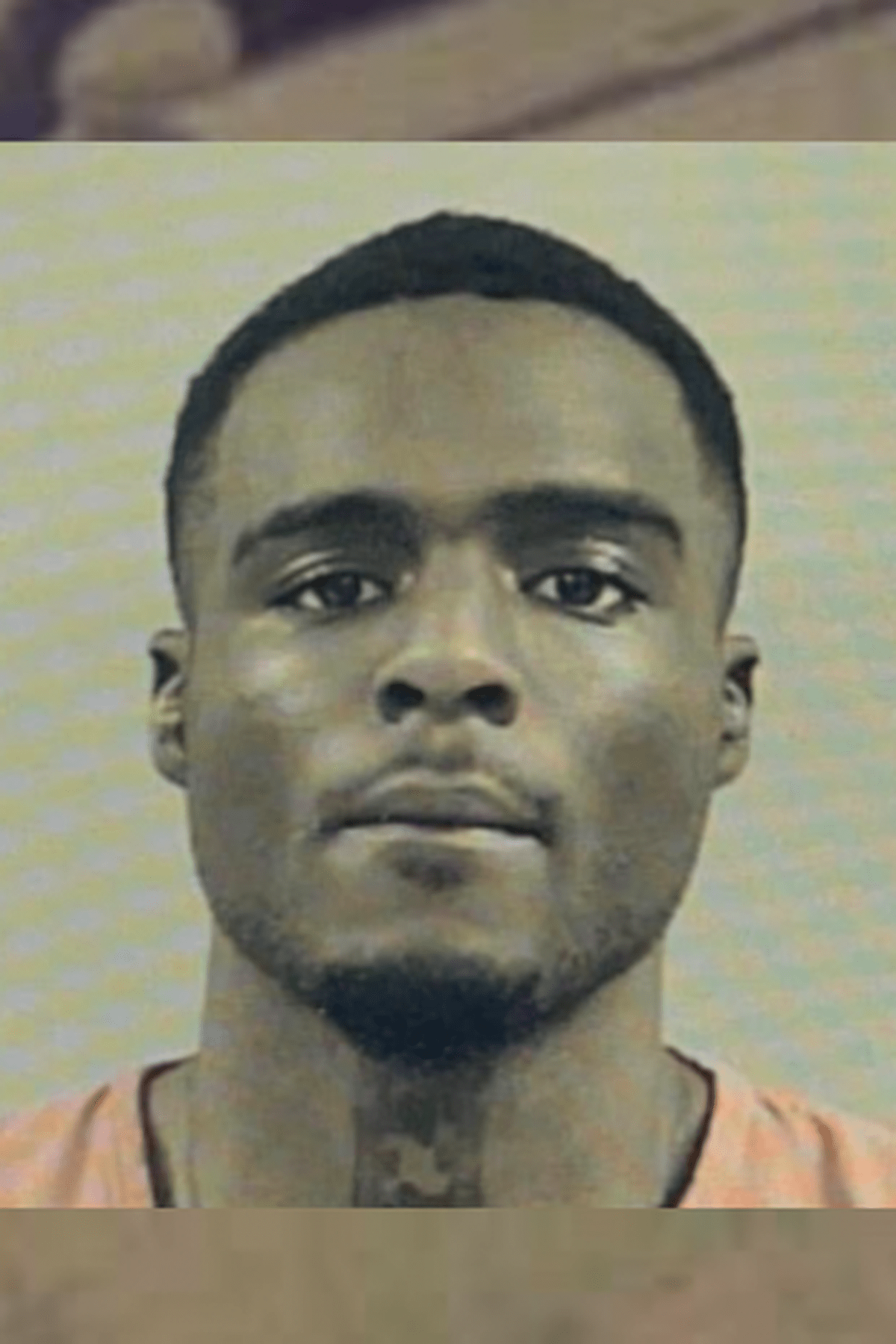Mississippi Today
Alleged killer released from state custody: ‘You just let him go,’ says victim’s father
Alleged killer released from state custody: ‘You just let him go,’ says victim’s father
The family of a Jackson homicide victim said they want answers and for members of the criminal justice system to be held accountable for releasing the man accused of killing their son from prison this week.
Anthony Tyrone Lindsey Jr. allegedly was shot to death on June 3, 2021, by Jocquiez Williams, who was on parole and on house arrest at the time of the shooting, according to Lindsey’s family. Williams later returned to prison to serve time for possession of a firearm by a convicted felon.
Lindsey’s parents said Thursday that Jackson police, the Hinds County district attorney’s office and the Department of Corrections all played a role in Williams’ release.
“You had him in your custody but you just let him go,” said Anthony Tyrone Lindsey Sr. “It’s more than one person who dropped the ball.”
Williams, 24, had been in custody at the Wilkinson County Correctional Facility to serve a sentence for a different crime, according to a Thursday statement by Corrections Commissioner Burl Cain.
He was released Wednesday, but MDOC cannot hold a person after they complete their sentence unless a detainer is attached to their file, which usually happens if they are accused of another crime. Policy allows MDOC to hold a person with a detainer up to 48 hours, and then MDOC would release them into the custody of the authorities who asked for the detainer.
“In Mr. Williams’ case, there was no detainer or warrant in Williams’ file. Without such detainer or warrant, MDOC could not lawfully detain Mr. Williams,” Cain said in the statement.
Spokespeople from Jackson police and the Hinds County district attorney’s office did not respond to a request for comment.
On Wednesday after Williams’ release, Hinds County Senior Circuit Court Judge Winston Kidd issued a bench warrant asking for Williams to be found and taken into custody from his last known address in Lexington.
“Jocquiez Williams was released inadvertently by MDOC and was not returned to the Hinds County Detention Center as proper protocol,” Kidd wrote.
Once found, Kidd said Williams will be held at the Raymond jail until he is brought before a judge to address the unindicted charges relating to Lindsey’s shooting death.
Williams has not been indicted for murder in Lindsey’s death or additional charges for the alleged kidnapping of a woman and her son and possession of a weapon as a convicted felon, according to court records. The woman, a former girlfriend of Williams and Lindsey, and her son were later found safe, local media reported.
In Mississippi, there is no timeline for a district attorney to seek indictment by a grand jury.
A spokesperson from the Hinds County District Attorney’s office did not respond to a request for comment about why it had not sought to indict Williams.

When he died, Lindsey Jr. had just celebrated his 24th birthday about a week earlier and was applying for jobs as a recent graduate of truck driving school.
Carolyn Lindsey said her son was the youngest of five children and the only boy. He liked to spend time with family, and he liked to ride horses and his four wheeler. Her son was kind and didn’t have a mean heart.
She said justice won’t bring her son back, but it could potentially bring closure for her family.
“He will be truly missed,” Carolyn Lindsey said. “There is not a day that goes by that I don’t think about him.”
This article first appeared on Mississippi Today and is republished here under a Creative Commons license.
Did you miss our previous article…
https://www.biloxinewsevents.com/?p=210675
Mississippi Today
Theology student’s ‘brain drains back home’ despite economics, safety concerns
Editor’s note: This Mississippi Today Ideas essay is published as part of our Brain Drain project, which seeks answers to why Mississippians move out of state. To read more about the project, click here.
Though I imagine I’ll never return, more often than not, my brain drains back to Mississippi. My whole adult life has been a journey up and down the Hudson River, from New York City to the Adirondacks, but inevitably, I find my thoughts leaking toward another river.
I grew up fearing being left behind in the Rapture, but in earnest, it feels like I’m the one who left everyone behind. I’m not proud of this, but I’m certainly not ashamed. I have roots in the Northeast now, and a life that isn’t easily transplanted elsewhere, especially to the Red Clay Hills of Neshoba County. Life took me from Mississippi, and life keeps me away.
I left Mississippi for New York in 2015, and I estimate that I’ve returned only 11 times. My sporadic trips home have been mostly because I’m consistently broke, but now it’s a combination of that and concerns for my safety.
My mother, also limited by finances and Mississippi’s minimum wage, has visited me twice in 10 years, once in the spring of 2016 and then when I graduated from Yale Divinity School in 2023.
I haven’t been back since I came out as a trans woman and began medically transitioning in the winter of 2024. I try not to be overwhelmed with guilt or grief for the imagined, shared life I don’t experience with my mother. Rather, I’ve learned to cherish what we do have.
It’s strange to be who I am, mostly for her but also for me. She has learned to love me regardless of whether or not she understands what I’m doing. In her mind, if you go to college, you become a nurse or a lawyer. You settle down, probably in Jackson, maybe Oxford, most likely in my hometown of Philadelphia, and commute by car more than an hour to work. You probably see your mom weekly. She sees her grandkids as often as possible.
That is not how life turned out. We do talk on the phone. Sometimes we get into once-a-week phone call sprees, other times, I drop off for weeks, maybe a month, when I’m depressed.
When I come home, she picks me up from the airport and drives me back a few weeks later. We crack the windows, smoke cheap Mississippi cigarettes and try to cram 10 years of a strange-to-us mother-daughter relationship into a 90-minute ride to the airport in Jackson. Usually, we talk about suffering, death, sin, God, the end of the world, and what the hell I am doing with my life.
You go to college to get a job, to make more money than your parents and to buy a strange suburban-but-rural McMansion just beyond city limits where you start a family around the age of 25 at the latest.
According to my mother, I went to the University of Mississippi and got brainwashed. She tells me often that it’s like she doesn’t know who I am, and she’s mostly right. She hasn’t met anyone I’ve dated in person since high school. She hasn’t seen me in person since transitioning, and I changed my name to Romy. I explain my relationship with my family to friends, peers, new partners and congregations, always with an articulate sense of heartbreak that I’ve learned to intellectualize and package up in a story of “working-class origins,” single motherhood, a white Christian nationalist rural community and my stumbling through adulthood “refusing not to live by my values.”
I originally left Mississippi to be an AmeriCorps Vista volunteer in the Capital Region of New York. I’d never been there. I took a Greyhound from Memphis to New York City to Albany, New York with two large suitcases and a backpack. Several of my friends from college had moved to New York City, and their couches and shared beds provided a safe launching pad for more of us. I had also fallen in love with a fashion student turned designer that I met on a trip to the city the year prior. Though that romance flamed and flickered for many years and ultimately flamed out, my reason for staying in the North was the life I was increasingly stumbling into.
I went there because, at the time, I had an insatiable desire to live out my values and politics. After all, I was maybe one of two socialist public policy majors at the Trent Lott Leadership Institute at the University of Mississippi, and I didn’t want to be a lawyer, a lobbyist or a policy wonk.
I wanted to be poor and engage in building sustainable autonomous communities. I wanted to learn how to be a person who had no work/life distinction, but a vocation and calling.
Through AmeriCorps, I luckily found a small group of activists, urban homestead types, organizers and ex-social workers living together helping others at the margins and themselves start businesses and worker-cooperatives while struggling through mental health crises, and taking on an impossible but seemingly always plausible dream of a directly democratic community owned, operated and governed only by those who live there.
This was my first “job” out of college. It was my dream come true, and the most difficult thing I’d ever done. I burnt out pretty hard after two years, and probably made somewhere between $25,000 and $30,000 during that whole time. Since then, the most I’ve made in a year is my current PhD stipend of about $34,000.
I was, however, helped along by friends, colleagues and the activist communities that I was stumbling into. Through them, I was encouraged to go to Union Theological Seminary, land a job at a prestigious artist residency in the mountains, go to Yale Divinity School, discern that I was called to be a priest and come to know myself as a trans woman.
My life outside of Mississippi has been sustained solely by relationships that transgress the boundaries between work and life, co-workers and friends. I regularly reflect on and often worry about how fragile this all is, and if my own vocational and intellectual pursuits have been worth what I’ve left behind or never had.
I’m not sure I’ll ever know. However, I’ve managed to find profound meaning in it all so far, and it keeps me digging myself into this hole in which I will hopefully find what I am looking for, or dig my own damn grave.
Originally from Philadelphia, Romy Felder (she/her) is currently a PhD student at Union Theological Seminary. She is also pursuing the priesthood in the Episcopal Diocese of New York. She has a background in worker-cooperative development, community organizing, popular education and arts management. Romy lives cavalierly but contentedly in Brooklyn, New York.
This article first appeared on Mississippi Today and is republished here under a Creative Commons Attribution-NoDerivatives 4.0 International License.
The post Theology student's 'brain drains back home' despite economics, safety concerns appeared first on mississippitoday.org
Note: The following A.I. based commentary is not part of the original article, reproduced above, but is offered in the hopes that it will promote greater media literacy and critical thinking, by making any potential bias more visible to the reader –Staff Editor.
Political Bias Rating: Left-Leaning
This essay reflects a distinctly personal and ideological perspective rather than neutral reporting. The author frames Mississippi as economically limiting and socially unsafe, particularly for marginalized identities such as transgender individuals, while presenting Northern activist and academic communities in a sympathetic and aspirational light. References to socialism, worker-cooperatives, and critiques of conservative Mississippi culture suggest a worldview aligned with progressive or left-leaning politics. The tone is introspective and critical of traditional Southern expectations, while valorizing alternative, activist-driven lifestyles. As such, the piece is less about balanced reporting and more an expression of lived experience through a progressive lens.
Mississippi Today
‘Get a life,’ Sen. Roger Wicker says of constituents
A note from Adam Ganucheau: A couple hours after this column published, Sen. Roger Wicker’s office reached out and demanded a correction, saying the senator’s “get a life” comment was directed to himself and not to constituents. That’s certainly not how I nor hundreds of Mississippians who commented on and shared the viral video heard it. Mississippi Today has updated portions of this column to reflect concerns raised by Wicker’s office. Here’s a link to the video/audio of his response to the question about constituent concerns. Mississippians can decide for themselves what Wicker meant.
When 34-year-old Thad Cochran arrived in Washington after his first election in 1972, the Republican felt it important to document what he’d heard and learned from Mississippians on the campaign trail and share it with his young staff.
He sat down at a typewriter and wrote a memo titled “General Responsiveness” and dated March 14, 1973:
During the campaign I detected a very strong animosity among the people toward government and those associated with government bureaus and agencies. This included elected officials and those associated with them. Part of the cause of this attitude was due to a lack of feeling or understanding by government people for the needs and opinions of the average citizen. We are all in a job to represent all our constituents. We are not the bureaucracy. A constituent who asks us for help should be assured to be in need of help with our office as his last resort. A constituent who writes a letter should be made to feel by our response that he is glad he wrote us. A constituent who claims to have been wronged by the government should be assumed to be correct. Everyone should guard against developing the attitude that we are better than, smarter than or more important than any constituent. We do not hold a position of authority over any constituent. We are truly servants of the people who selected us for this job.
Every year from 1973 through 2018, over his three U.S. House terms and six U.S. Senate terms, Cochran shared that memo with every staffer who worked in his offices. The guidance, he said all those years, was a necessary reminder to show respect to the people who offer feedback or need help. He never wanted his staff or himself to forget who sent them to Washington.
The memo, like so many other things, serves as a stark reminder that Cochran was among the last in a bygone era of American politics. The perspective he wrote and shared is a far cry from what Mississippians have been getting recently from our current U.S. senators.
“Surely everybody else has better things to do with their time,” senior U.S. Sen. Roger Wicker said to a room full of constituents earlier this month when asked about calls and emails his office has been getting. After half-heartedly explaining that he does see a list of names of people who reach out to his office, he quipped: “Get a life.”
Wicker’s office said Friday that the senator directed “Get a life” to himself, not to constituents.
Wicker, who typically chooses his words a little more carefully, perhaps has been trying to match his junior colleague’s energy.
“Why is everyone’s head exploding?” U.S. Sen. Cindy Hyde-Smith said in April to Mississippi constituents who had expressed concerns over slashing federal Medicaid spending. “I can’t understand why everyone’s head is exploding.”
There are many kind staffers working for Republicans Wicker and Hyde-Smith who are helpful to Mississippi constituents in any number of ways privately or behind the scenes. These people care deeply about serving their home state and they do it well, and they cannot help how their bosses address the public. But, boy, their phones must be blowing up more than ever since the senators made these comments.
Consider, for a moment, what it means that we have devolved from having a leader who believed that “a constituent who claims to have been wronged by the government should be assumed to be correct” to one who thinks telling constituents to “get a life” is appropriate. Think about the fact that we replaced a leader who regularly reminded his staff that “we are truly servants of the people who selected us for this job” with one whose gut response to legitimate concerns from constituents is that their “heads are exploding.”
Just … wow. To call it alarming doesn’t fully encapsulate the gravity of their behavior. It’s enough to discourage even the most optimistic among us about the present and future of our state and our nation.
It’s enough to inspire you to ponder, in this intense political climate when unprecedented and harrowing federal government decisions are being made and going largely unchecked every day, whether our current U.S. senators even remember why they’re in Washington, why we sent them there.
It is necessary, in the shortest possible order, to ask and answer for ourselves what we should expect of our elected officials and whether we should feel OK about being dismissed or ignored outright like this.
You don’t have to be a Democrat to think that this behavior is out of line. Plenty of Republicans — some publicly and many privately — are increasingly disturbed by what’s happening in Washington. Regardless of your own personal political beliefs, be honest with yourself about whether you can read these comments from our senators and still feel that your best interests are being represented.
Sadly, we can no longer ask Cochran to help us answer these questions, but it sure seems clear where he’d stand. What about you?
READ MORE: Mississippi, where ‘We Dissent’ means nothing to elected officials
This article first appeared on Mississippi Today and is republished here under a Creative Commons Attribution-NoDerivatives 4.0 International License.
The post 'Get a life,' Sen. Roger Wicker says of constituents appeared first on mississippitoday.org
Note: The following A.I. based commentary is not part of the original article, reproduced above, but is offered in the hopes that it will promote greater media literacy and critical thinking, by making any potential bias more visible to the reader –Staff Editor.
Political Bias Rating: Center-Left
The content critiques Republican senators for their dismissive attitude toward constituents, contrasting them with a more respectful past leader. It highlights concerns about current political behavior and governance, emphasizing accountability and responsiveness to the public. While it acknowledges that some Republicans privately share these concerns, the tone and framing suggest a leaning that favors more progressive or reform-minded perspectives, typical of center-left commentary.
Mississippi Today
UFC cage fighting at the White House: Will Mississippi follow the lead?
Change occurs so quickly in the 250th year of our nation’s existence sometimes we feel the need to call timeout, survey the rapidly shifting landscape and wonder: What next? What in Hades happens next?
We have a former Fox Network weekend host in charge of our military. We have a former professional wrestling promoter heading up the Department of Education (which she wants to scrap entirely). We have an anti-vaccine advocate leading the Department of Health and Human Services. Hard to tell these days who are our allies and who are our enemies. Few of our traditional allies trust us anymore. Our president creates, then delays, then reduces and then increases tariffs so often we can’t keep up.
Indeed, what the heck comes next?
Well, stop the presses. Now we know what’s next: Cage fighting on the White House grounds, UFC style. Trump has indicated he wants it to happen. His close friend Dana White, CEO of Ultimate Fighting Championship (UFC), says unequivocally this is going to happen. Paramount, which has been so much in the news lately, will televise it. Millions of dollars will be made. Eyes will be blackened! Brains will be concussed!! Blood will flow!!! Ratings will soar!!!! MAGA!!!!!
Ancient Rome had the Colosseum and gladiators fighting to the death for the entertainment of the emperor. Washington will have cage fighting, no holds barred, at the White House, heretofore a National Historic Landmark so designated for its significance to American history, architecture, arts and culture. At least there will be no lions in the White House cage. Or will there be? Perhaps alligators.
The target date is July 4, 2026. As Trump put it in a speech in Iowa: “We’re going to have a UFC fight, think of this, on the grounds of the White House. We have a lot of land there. … We’re going to have a UFC fight, championship fight, full fight.”
Yes, he really did say we have a lot of land there, leaving out the obvious. It doesn’t take much land for a caged-in, 746-square foot UFC octagon. Besides, there’s not enough room for a golf course, which Trump might prefer.
U.S. presidents have dabbled in sports before, though not quite the way Trump, who owns 17 golf courses worldwide, has immersed himself in golf. Trump in his second term reportedly has played golf on a quarter of the days he has been president, costing taxpayers roughly $70 million in travel and secret service expenses.
Previous presidents have not been quite so active, although Nixon installed a bowling alley in the White House basement. Eisenhower added a putting green on the White House lawn. Clinton added a jogging track to the White House grounds. Obama loved to play pick-up basketball. Most all recent presidents have been huge sports fans. But, at least to my knowledge, Trump is the first UFC aficionado in the White House.
Which brings to my mind this question: Which president would have been best at UFC? My money definitely would be on sturdy Teddy Roosevelt, who boxed at Harvard and sparred at both boxing and judo while president. He was a fitness freak. He also found time as president to save college football, although I’m not at all sure President Teddy would fancy what college football has become.
There are other president-athletes to consider. Abe Lincoln was a champion amateur wrestler and would have had a decided advantage in reach over most presidents. Gerald Ford was a Michigan football star who played on two national championship teams and was the Wolverines’ MVP as a senior. Ford was in the trenches, a center on offense and a linebacker on defense. This was back before facemasks. Clearly, he was a tough guy.
William Howard Taft, our 27th president, was a varsity heavyweight wrestler at Yale. In retrospect, it seems a shame sumo wrestling wasn’t popular in the early 20th century. Taft, 5 feet, 11 inches tall and weighing just over 350 pounds, would have been a natural.
On the local front, you don’t have to read Mississippi Today daily to know that Mississippi’s current political leaders often follow President Trump’s lead. Indeed, there seems a highly competitive contest to see which Mississippi politico can get the tightest grip on Trump’s coattails. They all want to follow Trump’s blueprint and make Mississippi great again.
With that in mind, can UFC fighting at the Governor’s Mansion, right there on Capitol Street, be far behind?
Think of the possibilities. For starters, how about Shad White vs. Andy Gipson? Who you got?
Clarification: This column was updated to reflect that the United States of America is in its 250th year of existence.
This article first appeared on Mississippi Today and is republished here under a Creative Commons Attribution-NoDerivatives 4.0 International License.
The post UFC cage fighting at the White House: Will Mississippi follow the lead? appeared first on mississippitoday.org
Note: The following A.I. based commentary is not part of the original article, reproduced above, but is offered in the hopes that it will promote greater media literacy and critical thinking, by making any potential bias more visible to the reader –Staff Editor.
Political Bias Rating: Center-Left
The article adopts a critical tone toward former President Trump and his administration, highlighting controversial appointments and policies with a degree of skepticism and irony. It uses humor and historical comparisons to question the appropriateness of hosting UFC cage fighting at the White House, suggesting a disapproval of the spectacle and the current political climate. While not overtly partisan, the piece leans toward a center-left perspective by scrutinizing conservative figures and policies more than offering balanced praise.
-
News from the South - Tennessee News Feed5 days ago
GRAPHIC VIDEO WARNING: Man shot several times at point-blank range outside Memphis convenience store
-
News from the South - Texas News Feed4 days ago
Kratom poisoning calls climb in Texas
-
News from the South - Texas News Feed2 days ago
New Texas laws go into effect as school year starts
-
News from the South - Florida News Feed2 days ago
Floridians lose tens of millions to romance scams
-
News from the South - Kentucky News Feed5 days ago
Unsealed warrant reveals IRS claims of millions in unreported sales at Central Kentucky restaurants
-
Our Mississippi Home7 days ago
Pride of Mississippi Marching Band to Kick Off Season with Free Concert
-
News from the South - Arkansas News Feed6 days ago
Idaho is losing OB-GYNs. Doctors who remain are trying to shoulder the extra burdens.
-
News from the South - Arkansas News Feed7 days ago
Look inside the newly-renovated Greer Lingle Middle School in Rogers




















































